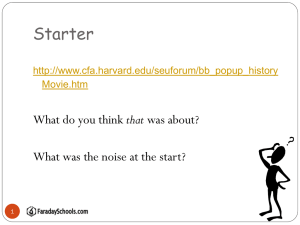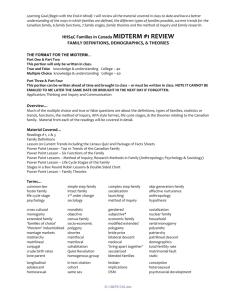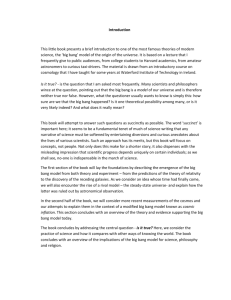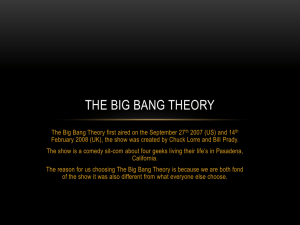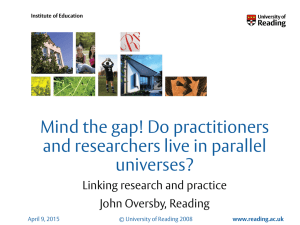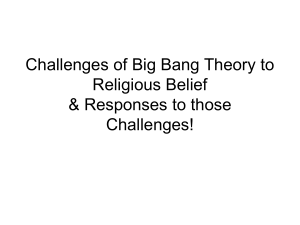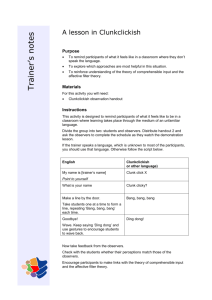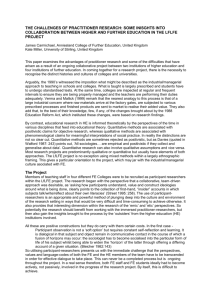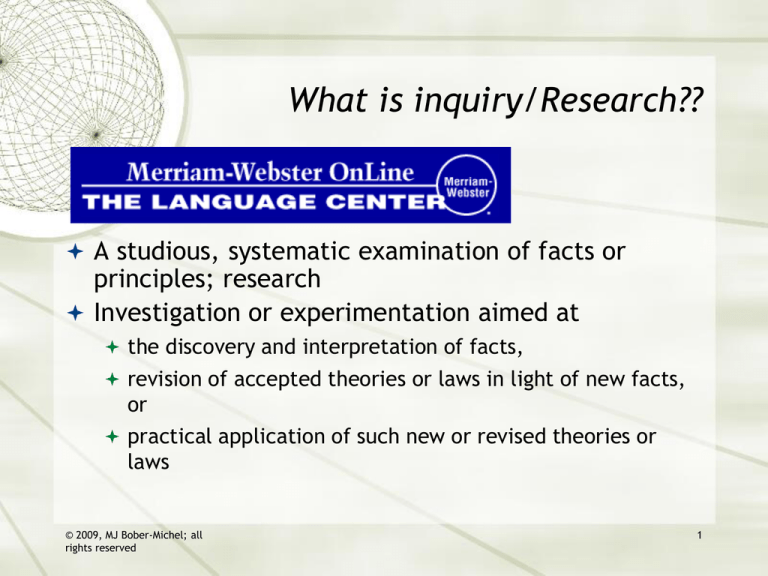
What is inquiry/Research??
A studious, systematic examination of facts or
principles; research
Investigation or experimentation aimed at
the discovery and interpretation of facts,
revision of accepted theories or laws in light of new facts,
or
practical application of such new or revised theories or
laws
© 2009, MJ Bober-Michel; all
rights reserved
1
Research is Everywhere
iPad and iPhone shift reading habits:
http://www.tuaw.com/2011/02/04/how-theipad-and-iphone-shift-reading-habits/
The Educational Value of Ugly Font
http://blogs.wsj.com/ideasmarket/2011/01/08/the-educational-value-ofugly-fonts/
Building Self-Esteem through Facebook
http://www.cnn.com/2011/TECH/social.media/
03/01/facebook.self.esteem/index.html?eref=mr
ss_igoogle_cnn
2
Research is Everywhere (2)
Women are Better than Men?!
http://www.glamour.com/sex-lovelife/2011/02/women-are-better-thanmen?currentPage=2
Go Easy On Yourself, a New Wave of
Research Urges
http://well.blogs.nytimes.com/2011/02/28/go-
easy-on-yourself-a-new-wave-of-research-urges/
Google’s Quest to Build a Better Boss
http://www.nytimes.com/2011/03/13/business/
13hire.html?hp
3
Inquiry -- from three different
perspectives
Basic:
scientific investigation to develop or enhance theory
Applied:
testing theory to assess its ”usefulness” in solving
(instructional or educational) problems
Evaluation:
determining whether a program, product, or process
warrants improvement, has made a difference or impact,
or has contributed to general knowledge or understanding
4
Inquiry calls for systematic thinking
What research (as we’ll study it) is not:
Mere information gathering
Mere information assembly
Mere rummaging for information
An abstraction (e.g., suggesting that “years of
research” have led to ________________)
© 2009, MJ Bober-Michel; all
rights reserved
5
The research/evaluation dichotomy:
real or contrived?
Evaluation differs from other kinds of
research in that...
central questions are derived from policymakers and
practitioners,
results are generally used to improve programs, projects,
products, or processes,
it tends to occur in turbulent action settings,
results are often reported to nonresearch audiences.
© 2009, MJ Bober-Michel; all
rights reserved
6
Why ED 690 in COE master’s programs?
To understand …
your field’s historical roots: its genesis, drivers, etc.
the issues and ideas about which practitioners have been
and are now most interested
how your field has been explored/examined: techniques,
strategies, methods
The research base informs the performance
solutions we develop/implement—from insights into
audience needs to facilitation models and
assessment options
© 2009, MJ Bober-Michel; all
rights reserved
7
The topics we’ll cover
The tools of research
Formulating a research “problem”
Determining a research design
traditional and eclectic, quantitative, qualitative, and
mixed methods
Collecting data/triangulating data:
techniques, sampling, reliability, validity
Analyzing data:
conceptually and “technically”
© 2009, MJ Bober-Michel; all
rights reserved
8
Working with complex terminology
Theory
Approach
Model
Principle
Guideline
Heuristic
Framework
Frame of reference
Orientation
© 2009, MJ Bober-Michel; all
rights reserved
9
Why conduct research (broadly)
To judge merit or worth
(accountability, accreditation/licensing, cost-benefit
decisions)
To improve programs
(identify strengths and weaknesses, ensure quality, or
check progress toward goals)
To generate knowledge
(make generalizations about effectiveness, build theory,
make policy, extrapolate principles that may be applied to
other settings)
10
Why conduct research (specifically)
To describe what happens
thus providing evidence regarding the short- and long-term
effects of ….
To determine cost-effectiveness
To improve existing programs
To document successes and mistakes
To predict how variables might impact/affect specific
situations
To explain or identify promising theories associated with
specific phenomenon
11
Research and decision-making (1)
Applied research (including evaluation) helps people
make a wide array of instrumental action decisions,
e.g.:
making midcourse corrections
continuing, expanding, or institutionalizing a program … or
cutting, ending, or abandoning it
testing a new program idea
choosing the best of several alternatives
deciding whether or not to continue funding
12
Research and decision-making (2)
Applied research (including evaluation) help people
make a wide array of organizational decisions, e.g.:
recording program history
providing feedback to practitioners
highlighting program goals
establishing accountability
understanding social intervention
13
Personal Traits of A “Good” Investigator
Methodical
Logical
Systematic
Organized
Able to manage time, to prioritize tasks
Good with people/able to connect, commands
respect, inquisitive/curious, not easily swayed by
rumor and innuendo, persistent, tenacious, calm,
etc.
14
Research and Researchers in the Big Bang Theory
© 2009, MJ Bober-Michel; all
rights reserved
15
Research and Researchers in the Big Bang Theory
© 2009, MJ Bober-Michel; all
rights reserved
16
Research and Researchers in the Big Bang Theory
© 2009, MJ Bober-Michel; all
rights reserved
17
Sex and the City
18
“Criteria”
As an researcher, then, you are expected...
to be competent
to be honest and demonstrate integrity
to show respect for people
to be politically savvy
to work systemically
to make data-based decisions
19

